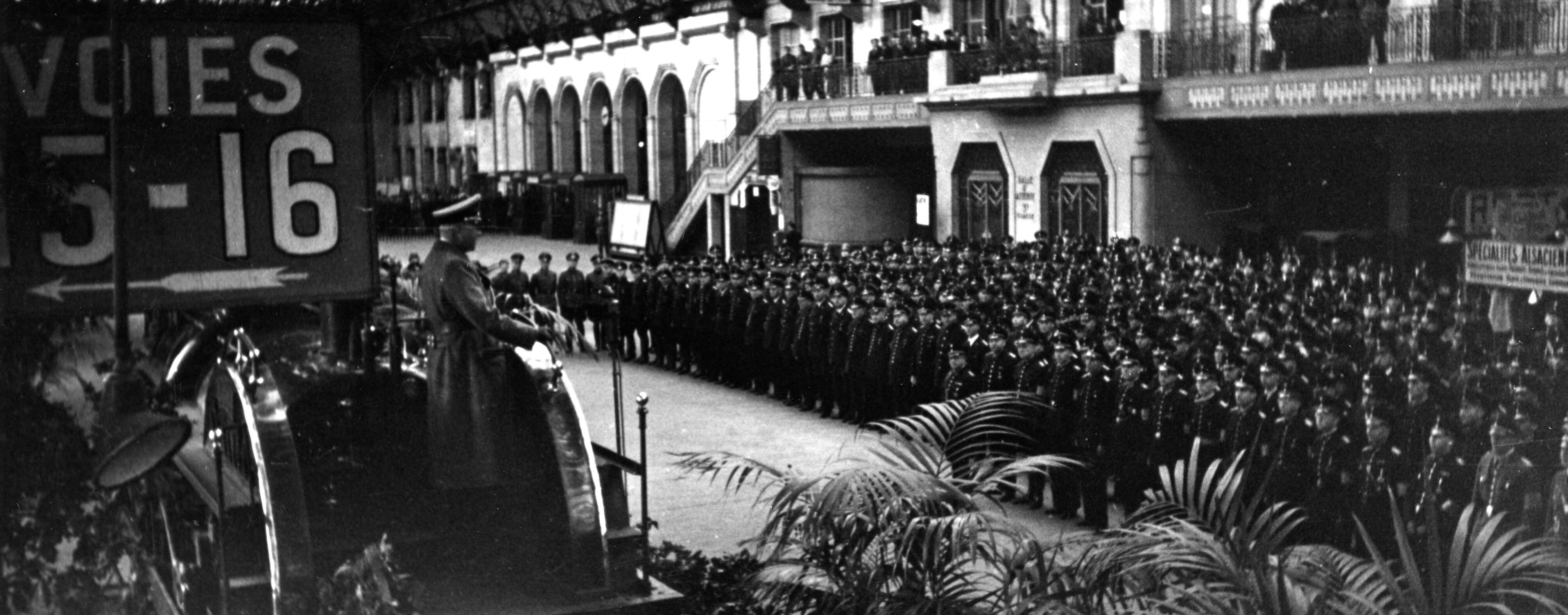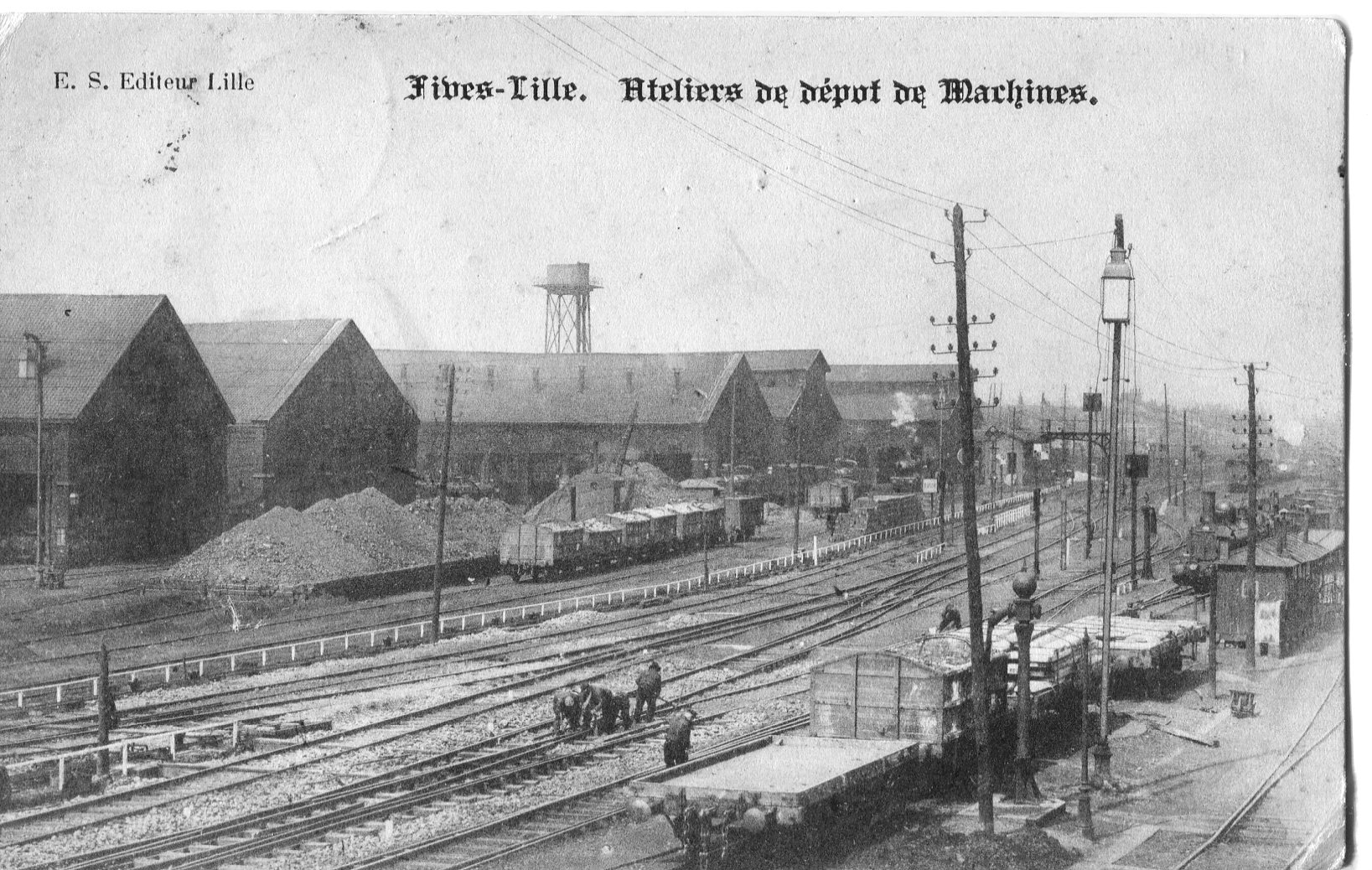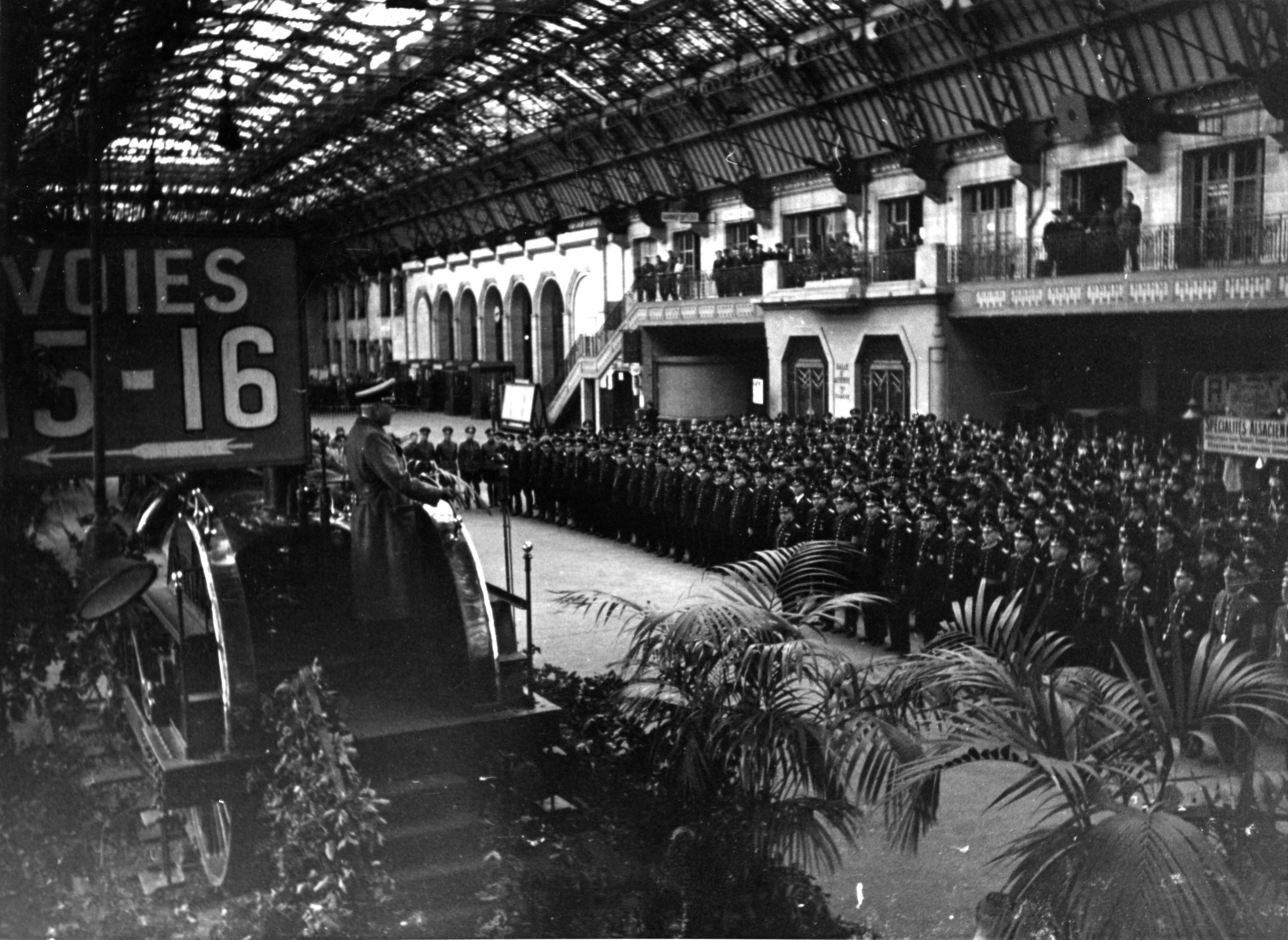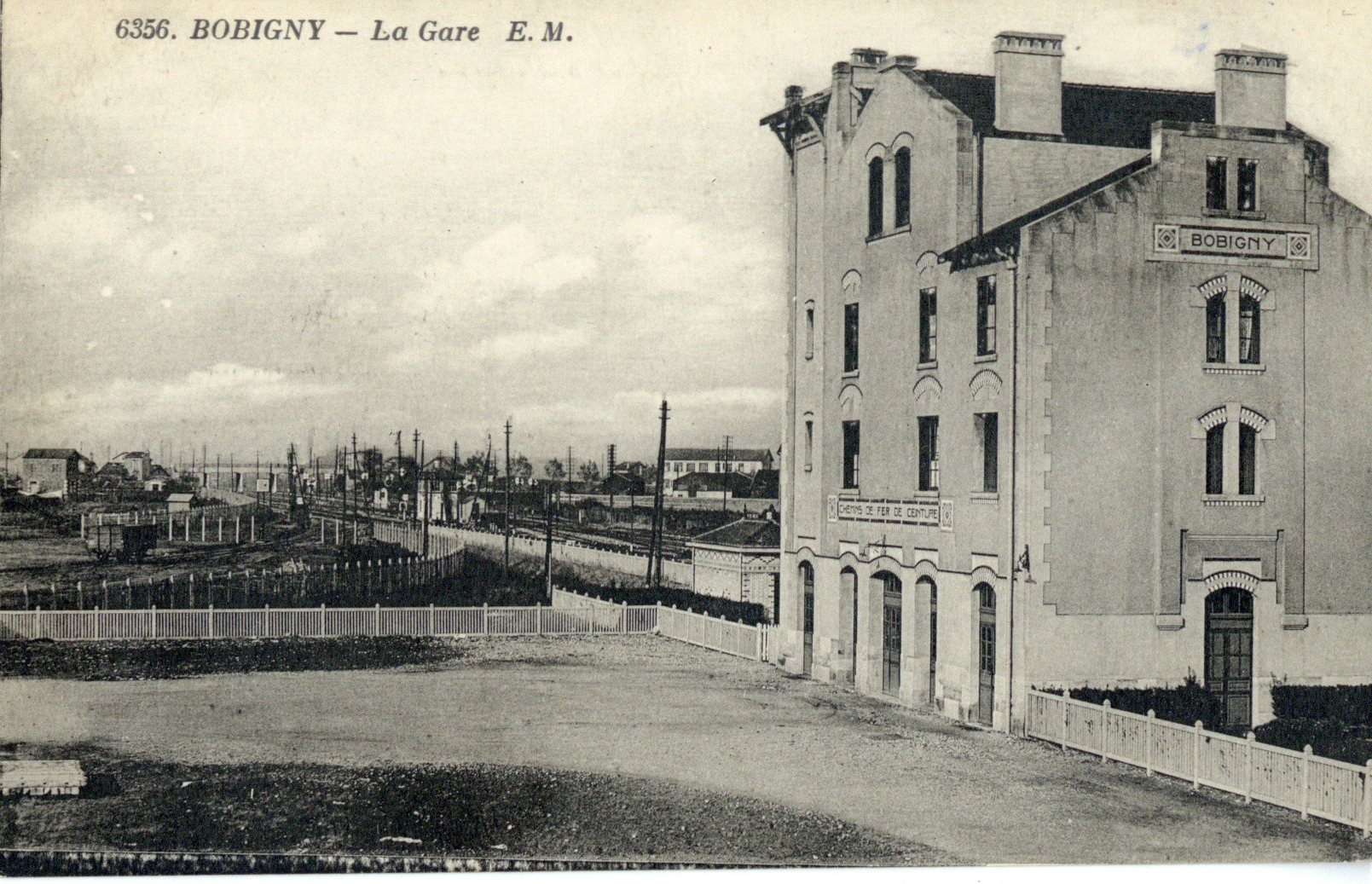You will find here a selection of documents on the theme of the occupation that can be found in our collections:
This map from the Central Movement Service represents the operational districts of the WVD (Wehrmachtverkehrsdirektion: German Army Transportation Directorate) and the 5 EBD (Eisenbahnbetriebsdirektion: regional directorates) Paris-nord, Paris-sud, Paris-ouest, Paris-est, and Bordeaux (1941).
The headquarters of the WVD is in Paris, except for a portion of the Nord and Est networks, which are under the jurisdiction of the WVD in Brussels. In June 1942, the WVD became a civilian authority known as the HVD (Hauptverkehrsdirektionen), “main directorates.”




